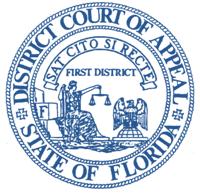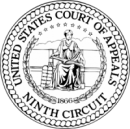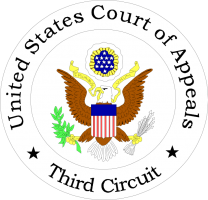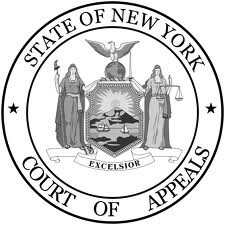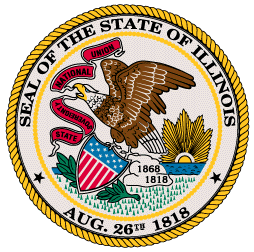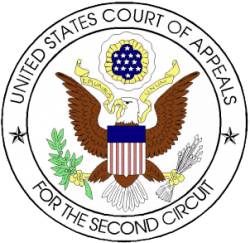Home » Mortgage Banking Foreclosure Law » Page 42
The U.S. District Court for the Southern District of Florida recently dismissed with prejudice a borrowers’ allegations that a loan servicer’s response to their request for information regarding drive-by property inspections violated the federal Real Estate Settlement Procedures Act (RESPA), and dismissed the remaining state-law allegations that the drive-by inspections violated the Florida Consumer Collection Practices Act (FCCPA) for lack of subject matter jurisdiction. A copy of the opinion is available here: Link to Opinion. The borrowers defaulted on their home mortgage loan. The loan servicer began conducting drive-by inspections pursuant to the mortgage. The borrowers sent a letter to the…
The U.S. Court of Appeals for the Seventh Circuit recently affirmed a district court’s judgment that a lender did not owe the borrower a fiduciary duty to use the payout from a homeowners’ insurance policy to pay down the loan instead of repair the house, but reversed the dismissal of the borrower’s breach of contract claim. A copy of the opinion is available at: Link to Opinion. The borrower purchased his home in 2005 with a $100,500 mortgage loan. The home was seriously damaged by a fire five years later. The borrower filed an insurance claim, and the insurer paid…
The District Court of Appeal of the State of Florida for the First District recently held that the statute of limitations does not bar a second mortgage foreclosure action based on a subsequent default, regardless of whether the first case was dismissed with or without prejudice. A copy of the opinion is available at: Link to Opinion. The borrowers defaulted on their mortgage in February of 2007. In April of 2007, the plaintiff mortgagee’s predecessor in interest accelerated the note based on the February, 2007 breach and sued to foreclose the mortgage. The case was dismissed without prejudice in October…
The U.S. Court of Appeals for Eleventh Circuit recently held that a municipality has standing to bring disparate impact discrimination claims under the federal Fair Housing Act to recover for allegedly increased police, fire and other costs supposedly caused by the defendant banks’ so-called “predatory lending” practices. A copy of the opinion is available at: Link to Opinion. The City brought three separate cases against three different banks, alleging that they violated the Fair Housing Act, 42 U.S.C. § 3601 et seq. (FHA), by supposedly targeting Black and Latino customers for so-called “predatory” loans that were allegedly riskier and had…
The U.S. Court of Appeals for the Ninth Circuit recently held that the district court abused its discretion in denying a plaintiff’s motion to certify a class of home buyers alleging that a scheme involving a title insurer buying minority interests in title agencies in exchange for referral of future title insurance business violated the federal Real Estate Settlement Procedures Act (RESPA), affirming in part, vacating in part and remanding for further proceedings. In so ruling, the Court held that the Consumer Financial Protection Bureau’s position in its amicus brief was not entitled to Chevron deference, because the CFPB was…
The U.S. Court of Appeals for the Third Circuit recently affirmed certification of a nationwide class of mortgage loan borrowers that could include tens, if not hundreds, of thousands of class members. More specifically, the Court held that the putative class plaintiff borrowers’ claims for violations of: (1) the federal Real Estate Settlement Procedures Act (RESPA); (2) the federal Truth in Lending Act (TILA); (3) the federal Home Ownership and Equity Protection Act (HOEPA); and (4) the federal Racketeer Influenced and Corrupt Organizations Act (RICO), satisfied the certification requirements of Federal Rules of Civil Procedure 23. A copy of the…
The Florida Third District Court of Appeal recently reversed a judgment foreclosing a reverse mortgage, holding that the surviving spouse was a “borrower” under the terms of the mortgage, and thus the lender could not meet the condition precedent of her death in order to foreclose. A copy of the opinion is available at: Link to Opinion. In 2008, husband and wife signed a promissory note secured by a “home equity conversion mortgage,” commonly known as a “reverse mortgage.” The wife signed the mortgage, but not the promissory note. After the husband died in 2009, the lender sued to foreclose,…
The New York Court of Appeals recently affirmed a trial court’s denial of a motion for deficiency judgment because the lender presented conclusory, insufficient evidence about the value of the property. In so ruling, the Court held that, even with uncontested deficiency motions, a lender that has foreclosed must present satisfactory evidence about the value of the property. However, the Court also held that when the lender presents insufficient evidence, the trial court should give the lender at least one additional chance to present adequate evidence. A copy of the opinion is available at: Link to Opinion. The lender filed…
The Florida Second District Court of Appeal recently reversed a trial court’s order in a mortgage foreclosure action limiting the liability of a loan servicer who acquired title by foreclosure for past-due condominium assessments, holding that the trial court lacked subject matter jurisdiction because the specific issue of assessments was not litigated or adjudicated by the trial court. A copy of the opinion is available at: Link to Opinion. The owner of a condominium unit failed to pay his mortgage loan, resulting in the loan servicer suing to foreclose the mortgage and obtaining title at the foreclosure sale as the…
As you may recall, an Illinois appellate court held in 2012 unreported opinion that mortgage servicers may be subject to Illinois Collection Agency Act, 225 ILCS 425/1, et seq. (ICAA), including the licensing and other requirements of the ICAA. The Court held that, “[d]epending on what a mortgage servicer does other than elicit and receive routine or timely mortgage payments and attempt to collect delinquent payments, it may or may not be a debt collector” under the ICAA. A copy of the opinion is available at: Link to Opinion. The State of Illinois recently amended ICAA to among other things: Clarify…
The U.S. Court of Appeals for the Second Circuit recently rejected claims by borrowers who failed to maintain hazard insurance on their mortgaged properties that they were overcharged by their loan servicer for lender-placed insurance, holding the claims were barred by the filed rate doctrine. A copy of the opinion is available at: Link to Opinion. The plaintiffs, borrowers who failed to purchase hazard insurance on their homes as required by the terms of their loans, sued their loan servicer, who purchased lender-placed insurance (LPI) from defendant insurers at rates approved by the applicable regulatory agencies, then sought to collect…
The U.S. Court of Appeals for the Eighth Circuit recently affirmed the dismissal of a class action by Missouri borrowers alleging that various assignees and purchasers of second mortgages charged or collected illegal fees in violation of the Missouri Second Mortgage Loan Act (MSMLA), holding that plaintiff borrowers lacked standing to sue the defendants who did not service their loans. In so ruling, the Eighth Circuit refused to apply a state appellate court ruling made during the long history of this action, instead ruling that the MSMLA has a three-year statute of limitations, and that this three-year statute of limitations…



